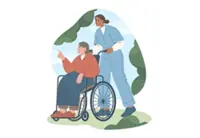Selangor government is reviewing care centre regulations as demand for the services increases in tandem with the state’s growing population.
Special Committee for the Improvement of Care Services chairman Michelle Ng said the state government was gathering feedback to refine existing guidelines, expected to be finalised within the year.
She said the information collected during a workshop involving care centre operators and stakeholders would provide insight into how centres were operating and what changes may be needed to strengthen oversight.
The Petaling Jaya Care Economy Action Plan 2025-2030 Workshop, held at the Petaling Jaya City Council’s (MBPJ) headquarters, was to better understand the landscape of care centres and the care economy in the city.
“This will be the basis for forming our guidelines,” she said in a recorded video message to participants.
Ng said the review was necessary as Selangor’s growing population would impact the demand for care services and how centres operate.
“The average annual population increase of 13.8% across Petaling Jaya, Shah Alam, Subang Jaya and Klang will shape the sector’s development in the coming years.”
Ng said the state would look into regulations such as the 200m-radius rule, which governs the minimum distance between care centres.
“We want to know where the centres are operating to determine, for example, if the 200m- radius rule is still necessary or needs to be reconsidered.”
She added that operating trends, types of premises and care centre distribution must also be studied to ensure policies remain relevant.
“If, for example, data shows a shift toward care centres operating in apartment buildings, the government will need to find a way to whitelist such premises.”
Ng said unregistered care centres remain a concern, particularly in light of Selangor recording the highest number of child abuse cases in the country for three consecutive years.
“Selangor police have indicated that many of these cases were linked to unlicensed premises.
“Without registration, the state cannot ensure that workers have received the necessary training.”
Following this initial engagement workshop, the state plans to expand discussions to other local councils.
Petaling Jaya mayor Mohamad Zahri Samingon said the feedback collected would be compiled into a report and presented to the state government by June.
“The data gathered from this engagement will serve as a reference for the state to shape future policies,” he said.
“It will also provide a framework for other local councils to refine their approach to the care economy.”
He said the care sector remained critical as Malaysia’s demographic changes would continue driving demand for such services.
“To ensure quality and safe care services, MBPJ continues to strengthen the management and monitoring of care centres in Petaling Jaya,” he said.
According to MBPJ data, Petaling Jaya currently has 147 nurseries, 108 childcare and care centres for the disabled and 70 elderly care homes.
Of the 147 nurseries, 132 have been registered with the authorities, while 15 are unregistered.
There are 108 childcare, welfare and disability care centres, of which 98 are operating with full approvals, while 10 have yet to obtain the licence.
For elderly care homes, 66 have been approved, while four are unregistered.





